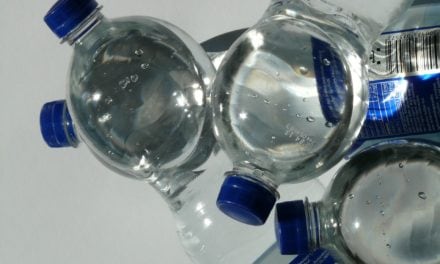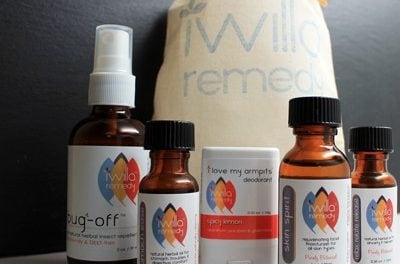Brain Power: Protect Your Mind from Aging

Intellectual stimulation, such as reading or taking classes, may help keep your cognitive skills sharp over the course of a long and vibrant life. (Getty Images)
When you focus on fitness, you most likely think about keeping your body in top shape. But the National Center for Creative Aging reports that we also need to think about keeping our brains healthy and fit. Working in partnership with the company life’sDHA™, the center is kicking off their 2014 Beautiful Minds: Finding Your Lifelong Potential campaign by sharing the latest advice for keeping your cognitive skills sharp over the course of a long and vibrant life.
Use it or lose it: Frequent intellectual stimulation lowers your risk of dementia and slows cognitive decline. Don’t buy the old adage that you can’t teach an old dog new tricks. Your mind is open to learning new facts, skills and grasping new ideas throughout your life. Try reading, playing games (especially word games), taking classes, learning a musical instrument, putting off retirement or just learning a new fact each day.
Eat smart. Nutrition-packed foods that lower cholesterol and inflammation also protect key areas of the brain when it comes to aging. People with high blood pressure or high cholesterol also have twice the risk of dementia. For an easy-to-follow healthy eating plan, consider the Mediterranean Diet. It’s been proven to reduce heart disease, diabetes and Alzheimer’s disease.
There are also certain foods that have been proven to protect the brain. Enjoy generous amounts of ginger, green tea, fatty fish, soy products, blueberries and other dark-colored berries.
Avoid refined carbohydrates, especially sugar and white flour. These foods spike your blood sugar and inflame the brain.
Move for mind health. Exercise can reduce your risk of getting Alzheimer’s disease by 50 percent, according to the Alzheimer’s Research and Prevention Foundation.
Your goal should be to get at least 30 minutes of aerobic exercise five times a week, and light-to-moderate weight training two-to-three times a week, even if you’re over 65. Walking and swimming are ideal for stressed joints. If you are worried about injury, ask your doctor to evaluate you and suggest an exercise plan. According to the National Institute on Aging’s everyday exercise guide, you’re never too old to bust a move.
Cultivate inner calm. Research shows that chronic stress actually shrinks an area of the brain (the hippocampus) that is needed for memory.
Aggravation and anxiety are normal parts of life, but fight back with a daily relaxation routine, such as walking, playing with a pet or meditating. Steer clear of people who fray your nerves.
Keep folks close. Social connection nurtures the mind. People who interact with other people regularly score higher on memory and cognition tests. Spending time with family and friends is essential, but it’s also great to keep working, volunteer or join a club.
Overall, to keep your mind sharp, do your best to stay healthy. Diabetes, heart disease, obesity and many other health problems contribute to dementia, so keep up with your check-ups and take care of yourself.
Vitamin D May Increase Breast Cancer Survival
Women with breast cancer who have higher levels of vitamin D are twice as likely to survive the disease reports a new study conducted at the University of California, San Diego School of Medicine (UCSD).
Black women are less likely to get breast cancer, but some studies show that we are also about 40 percent less likely to survive the disease.
To identify the role of vitamin D in breast cancer survival, Cedric F. Garland, Dr.P.H., a professor in the Department of Family and Preventive Medicine at UCSD, analyzed five studies of vitamin D levels obtained at the time of breast cancer diagnosis, in a group of 4,443 breast cancer patients. The women were followed for an average of nine years.
Garland explains that “vitamin D metabolites increase communication between [cancer] cells by switching on a protein that blocks aggressive cell division. As long as vitamin D receptors are present, tumor growth is prevented. These receptors are not lost until a tumor is very advanced. This is the reason for better survival in patients whose vitamin D blood levels are high.”
The high level of vitamin D among the women studied was 30 nanograms per milliliter (ng/ml) of 25-hydroxyvitamin D. The low-level group averaged 17 ng/ml. The average level in patients with breast cancer in the United States is 17 ng/ml, a level considered a deficiency.
Black Women and Vitamin D
There’s been some controversy and confusion in recent years about whether vitamin D tests accurately measure the levels of vitamin D in black women. For years, people with brown skin tested as deficient in vitamin D. New research published last year challenged this idea. Scientists now realize that the current tests do not accurately measure vitamin D in African Americans, but more research is needed to produce a better test.
Because high levels of vitamin D (greater than 50 ng/ml) can be toxic, it’s best to ask your doctor to run the available tests and give you guidelines for supplementation. Garland suggests that physicians treating breast cancer patients add vitamin D supplementation to their treatment.
To learn more about vitamin D, visit the National Institutes of Health resource page. It’s difficult to get vitamin D through dietary sources, unless you are careful about eating lots of fatty fish and consuming fortified foods such as milk, orange juice and certain cereals. The other natural source of vitamin D is sunlight, but many studies show that dark skin produces less vitamin D when exposed UVA and UVB rays.
Water Not Magic for Weight Loss
You’ve probably heard the advice 100 times: “Drink lots of water, especially if you’re dieting, to speed weight loss.” But Beth Kitchin, Ph.D., R.D., a professor and nutrition expert at the University of Alabama at Birmingham, says water is a necessary part of a healthy nutrition plan, but it won’t melt away pounds.
“There is very little evidence that drinking water promotes weight loss; it is one of those self-perpetuating myths,” Kitchin says. “I’m not saying drinking water isn’t good; but only one study showed people who drank more water burned a few extra calories, and it was only a couple of extra calories a day.”
She adds that the other part of the myth is that we need eight, 8-ounce glasses of water each day to be properly hydrated. “You need to get fluids; but it does not have to be water.” Coffee and other caffeinated beverages can do the job, just avoid cream and sugar.
So if you’re not a fan of H2O, try a little variety. Your waistline won’t notice. Sip:
•Iced or hot green or black tea
•Fresh vegetable juice (fruit juices can be high in sugar)
•Low-fat milk or hot chocolate made with unsweetened dark chocolate and a little cinnamon
•Fizzy mineral water, with a splash of fresh fruit juice.








